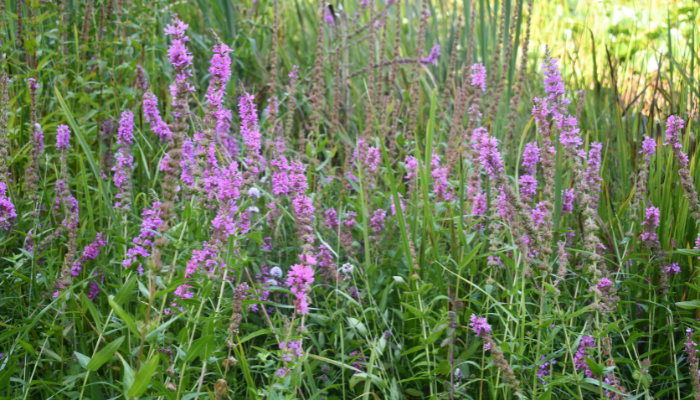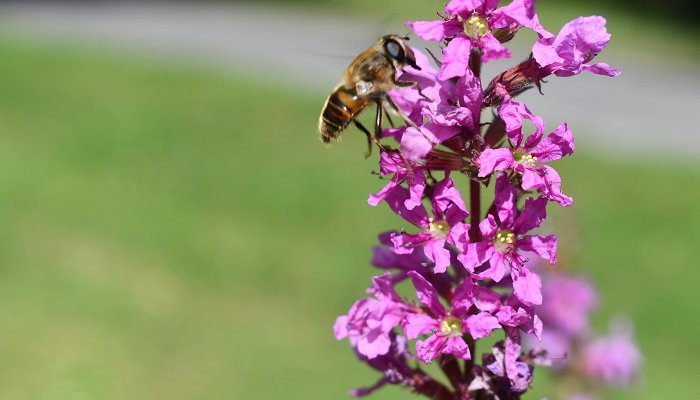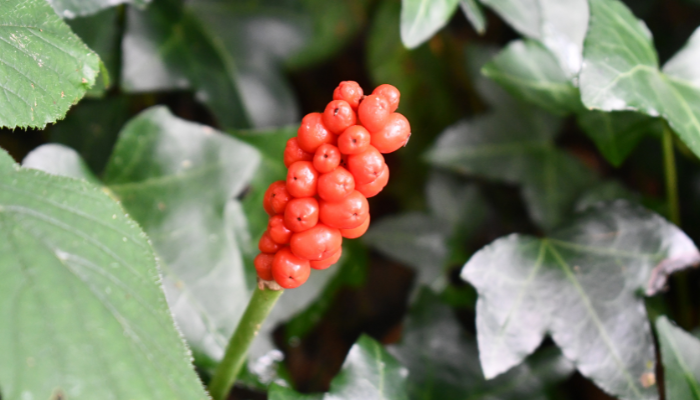25 September 2022
Growing wild – Purple loosestrife and Lord and Ladies

Catherine Keena, Teagasc Countryside Management Specialist takes a closer look at some of our native Irish biodiversity to look out for in the countryside. This week Catherine shares some interesting facts about Purple loosestrife and Lord and Ladies
Purple loosestrife

Look out for Purple loosestrife with vibrant purple or magenta spires of flowers in dense whorls. With deep roots, this tall plant of marshy ground, tolerates fluctuating water levels. It can be found on damp, waterlogged margins of bogs, lakes and riverbanks. It is a very hairy plant with paired opposite lanceolate willow like leaves. Associated fauna include medium sized bees and hoverflies, which pollinate it, caterpillars of powdered quaker moth, small elephant hawk-moth and emperor moth, and beetles which graze leaves, roots and flowers. Used in herbal medicine as a cure for diarrhoea and dysentery, purple loosestrife is part of our native Irish biodiversity.
Lord and Ladies

Look out for the fruiting spike of Lord and Ladies in shady hedges and under dappled sunlight of native woodland margins, especially in lime-rich soils. The iconic cluster of scarlet fleshy berries on the spike is spectacular and instantly recognisable. Although all parts of the plant are extremely poisonous, the berries are eaten by blackbirds, thrushes and pigeons. The plant is pollinated by small midges, called owl midges. Starch from the roots was used to stiffen linen. Lord and Ladies, also called cuckoo pint is part of our native Irish biodiversity.
See previous Growing Wild articles below:
- Growing Wild – willowherb and water mint
- Growing Wild – dandelion and greater stitchwort
- Growing Wild – willow, primrose and lady’s smock
- Growing Wild – whitethorn and cow parsley
- Growing Wild – bluebells and guelder rose
- Growing wild – Honeysuckle and Foxglove
- Growing Wild – Elder and Ragged Robin
- Growing wild – dog rose and meadowsweet
- Growing wild – Privet and Lady’s Bedstraw
- Growing Wild – Bird’s foot trefoil and Knapweed
Keep an eye on Teagasc Daily for another Growing Wild later in the month. Learn more from Teagasc about Biodiversity & Countryside
